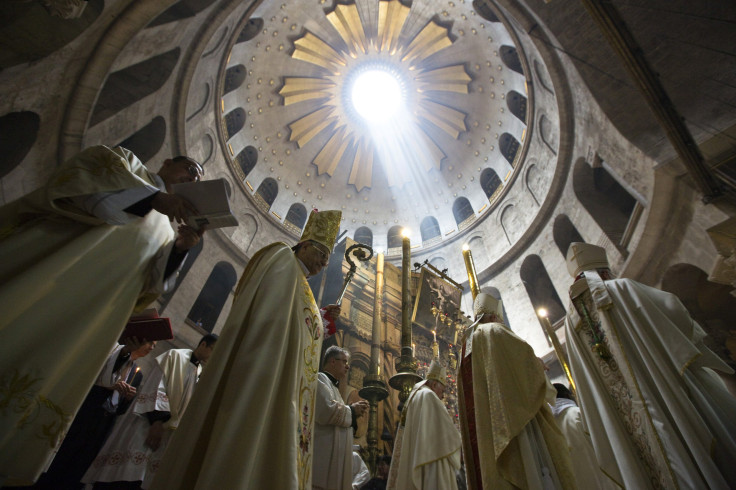When Is Easter Sunday 2015? Date, History Of Why The Christian Holiday Changes Days Every Year

Easter Sunday will fall on April 5 in the Western world this year, nearly two weeks earlier in the month than last year’s Easter celebration. Unlike many other Christian holidays, Easter’s date is based on the lunar calendar, accounting for why the holiday does not have a fixed date. As the culmination of Holy Week, Easter celebrates the resurrection of Jesus Christ and is one of the most important festivals on the Christian calendar. Despite its position of prominence in the Christian tradition, setting the date of Easter celebrations has been a controversial subject historically.
Even during Christianity’s early history, many Christian communities bitterly disagreed on the date, so Easter was celebrated on different days in different countries. It was not until the council of Nicaea in 325 A.D. that an attempt was made to standardize these celebrations, according to the BBC. The council chose the Sunday after the first full moon following the spring equinox because of the theological significance of the day, known for its 12 hours of daylight followed by 12 hours of moonlight.
While the move should have ended the disputes, disagreements about the Easter celebration continued because there was not yet an accurate universal method of calculating the day. Following the various schisms that divided the church's Eastern and Western adherents, the Gregorian calendar was eventually adopted, standardizing the celebration of Easter in much of the West. Eastern churches, however, continue to celebrate Easter according to the Julian calendar.
The varying date of Easter celebrations between Eastern and Western churches does occasionally coincide, as in 1865 and 1963. However, agreement on a common date has yet to take place, despite more recent attempts, including in 2009, when an ecumenical seminar at the Ukrainian Catholic University in Lviv attempted to reach consensus on the subject between Catholic, Protestant and Eastern Orthodox churches. Nonetheless, centuries of tradition and disagreement have continued to stand in the way of a standardized date.
© Copyright IBTimes 2024. All rights reserved.






















